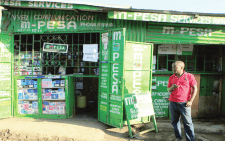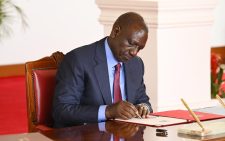Act now to make Africa resilient to climate shocks

Despite accounting for roughly only four per cent of global emissions, Africa is one of the regions that is most vulnerable to and the least able to protect itself from the adverse impacts of climate change.
Currently estimated to be warming 1.5 times faster than the global mean, the region is also experiencing disproportionate exposure to climate risks, which will worsen if ambitious commitments are not followed up by urgent implementation.
Already, the continent is increasingly devastated by severe droughts, flooding, sea level rise, heat waves and other extreme events. Since the beginning of 2022, Africa has experienced a string of severe and occasionally unprecedented extreme weather events, from devastating floods in Nigeria to severe drought in Somalia including most parts of the Horn of Africa.
As a result of unavoidable climatic impacts, African countries are already spending a substantial amount of money and incurring losses on both an economic and non-economic level. For more than 10 years, Africa has prioritised loss and damage in UN climate negotiations, but little progress has been made, especially around how to pay for it. Without immediate and scaled up climate action, including sharply reducing our dependence on fossil fuels, the world will exceed the 1.5℃ of global warming, and head into uncharted territory with global warming heading to 2.7℃.
Already, half of the assessed African species are expected to lose more than 30 per cent of their population or area of suitable habitat due to global warming.
In addition, between 108 and 116 million people will be exposed to sea level rise, 17 to 40 million people could be forced to migrate, staple crops and fish harvest with fisheries catch are expected to decline by up to 40 per cent and transmission of vector-borne diseases will increase.
The next few years will be critical for the continent. This makes the United Nations Framework Convention on Climate Change COP27 in Sharm el-Sheikh, Egypt, not just a high-level policy event but a critical moment to mount an effective response on a path to make Africa resilient to climate vagaries.
The COP27 WWF Africa Expectation paper outlines the key asks and outcomes for the negotiations to achieve a Climate Resilient Africa by 2030. At COP27, African negotiators and stakeholders should advance for a well-developed and clear position on loss and damage in order to move the topic up the negotiation’s priority list and get support for the recommended Loss and Damage Finance Facility.
Paramount is securing the requisite financial resources to address adaptation needs, reduce greenhouse gas emissions, account for climate change related loss and damage and secure climate finance.
Only four to eight per cent of all climate finance has been allocated to adaptation investments. Based on an assessment of the climate finance needs of African countries, it is estimated that collectively, the cost of implementing Nationally Determined Contributions set by African countries represents more than 93 per cent of the continent’s GDP and that it will cost around Sh333 trillion between 2020 and 2030 to implement them.
Africa also needs to secure resources to ensure access and just transition to renewable energy by exploiting its vast wind, sunshine, hydropower and geothermal resources.
This is because more than 600 million people in Africa still lack basic access to affordable, reliable, clean energy while over one billion people in 54 countries assessed lack access to cooling, which is crucial to food security, medical supplies, livelihoods and the prevention of heat-related deaths.
It is vital for the global community to unlock the necessary financial flows to Africa as it embarks on a just transition to a future powered by renewable energy expansion and implements other commitments to reduce greenhouse gas emissions.
— Alice Ruhweza is the WWF Regional Director for Africa












